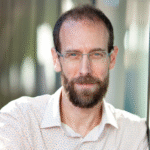- 12:00 - 1:15 pm ET
Can We Afford to Ignore Solar Geoengineering?
Résumé du webinaire
As technologies to address climate risks accelerate, Canada faces a strategic crossroads: should it invest now in solar radiation modification (SRM) research, part of a growing suite of geoengineering technologies designed to reflect sunlight back into space, in order to reduce the impacts of climate change?
With implications for climate mitigation, governance and energy security, Canada’s answer to this question could define its ability to influence how and where SRM is deployed. If it waits, experts warn Canada may be excluded from key decisions that affect its ecosystems and geopolitical interests. But public skepticism remains, causing some early SRM projects to be halted due to opposition.
In the Transition Accelerator’s recent webinar, CEO Dan Wicklum asked experts David Keith, Professor and Founding Faculty Director, Climate Systems Engineering Initiative at the University of Chicago and Lisa Dilling, Associate Chief Scientist at the U.S. Environmental Defense Fund, how Canada should build the research capacity to understand and responsibly evaluate it SRM.
The takeaways were clear: a structured approach to SRM governance and decisionmaking is needed now—before global decisions outpace domestic readiness. And with SRM poised as a key solution for mitigating the impacts of climate change, it deserves our research attention now, underscored Keith.
“If there’s a single reason to take this topic seriously, it’s the set of climate model results that suggest that some versions of solar geoengineering could reduce many climate risks that are most concerning,” he explained.
Still, the technology carries risks. In an explanation of the many concerns facing solar geoengineering, Keith warned that SRM could delay emissions reductions by creating the illusion of a quick fix:
“There’s all sorts of physical risks – even well-intentioned or of benevolent deployment. There are concerns around different kinds of injustice. And there is this concern about moral hazard—the idea that this will be exploited by fossil fuel rich nations or companies to try and avoid emissions cuts.” But there are always trade-offs to be considered in any kind of climate solution, explained Keith: “If these technologies could really reduce harms—especially to the more vulnerable—I think they’re worth taking seriously, even though I think there’s some real risk.”
Lisa Dilling underscored that the point of launching solar geoengineering research is not prediction or promotion, but better-informed governance.
“We need to think of impacts research [around solar geoengineering] not as a prediction—but about how well do we know what we think we know. For example, geopolitical risks: how would you compensate people or countries who say they have suffered harm?”
Finally, Keith called for democratic accountability and underlined the importance of governments forming processes that reach democratic decisions about what kind of research should be conducted.
Experts agreed that without proactive national engagement—through assessments, modelling, and support for social and physical science—countries will lack the expertise to contribute meaningfully if and when SRM becomes part of international climate discourse. The main takeaway? Canada’s opportunity is not to lead deployment, but to lead responsibly in knowledge, capacity, and influence—before it’s too late.
Personnes invitées

Dan Wicklum, PhD
Conseiller exécutif
Le Dr Dan Wicklum possède plus de 25 ans à mener et à gérer des activités de recherche, à stimuler l’innovation et à favoriser la collaboration entre l’industrie, les gouvernements, le milieu universitaire et la société civile. À titre de chef de la direction fondateur de l’Accélérateur de transition, il a consacré sept ans à en faire l’organisation la plus influente au Canada en matière de compétitivité énergétique et de stratégie industrielle, avant d’assumer le rôle de conseiller exécutif en janvier 2026.
De 2021 à 2023, Dan a été le premier coprésident du Groupe consultatif pour la carboneutralité du Canada (GCPC), l’organisme indépendant créé par la loi pour conseiller le gouvernement fédéral sur l’établissement et l’atteinte de ses cibles de réductions d’émissions. Au cours de sa carrière, il a notamment occupé les fonctions de chef de la direction de l’Alliance pour l’innovation dans les sables bitumineux du Canada et de directeur général du Conseil canadien de l’innovation forestière. Il est titulaire d’un doctorat en écologie aquatique de l’Université du Montana, obtenu à la suite d’une première carrière dans le football professionnel, où il a évolué comme secondeur au sein des Stampeders de Calgary et des Blue Bombers de Winnipeg.
Personnes invitées

David Keith
Professor and Founding Faculty Director, Climate Systems Engineering Initiative, University of Chicago
David Keith has worked on energy and climate since 1990, when he switched out of physics. Now, he’s a prof at the University of Chicago, and, in a detour from academia, he founded Carbon Engineering, a cleantech startup.

Lisa Dilling
Associate Chief Scientist, Environmental Defense Fund
Lisa Dilling is Associate Chief Scientist at the Environmental Defense Fund, previously a professor at the University of Colorado Boulder. She is an expert on societal solutions to climate change and the science-policy interface.
